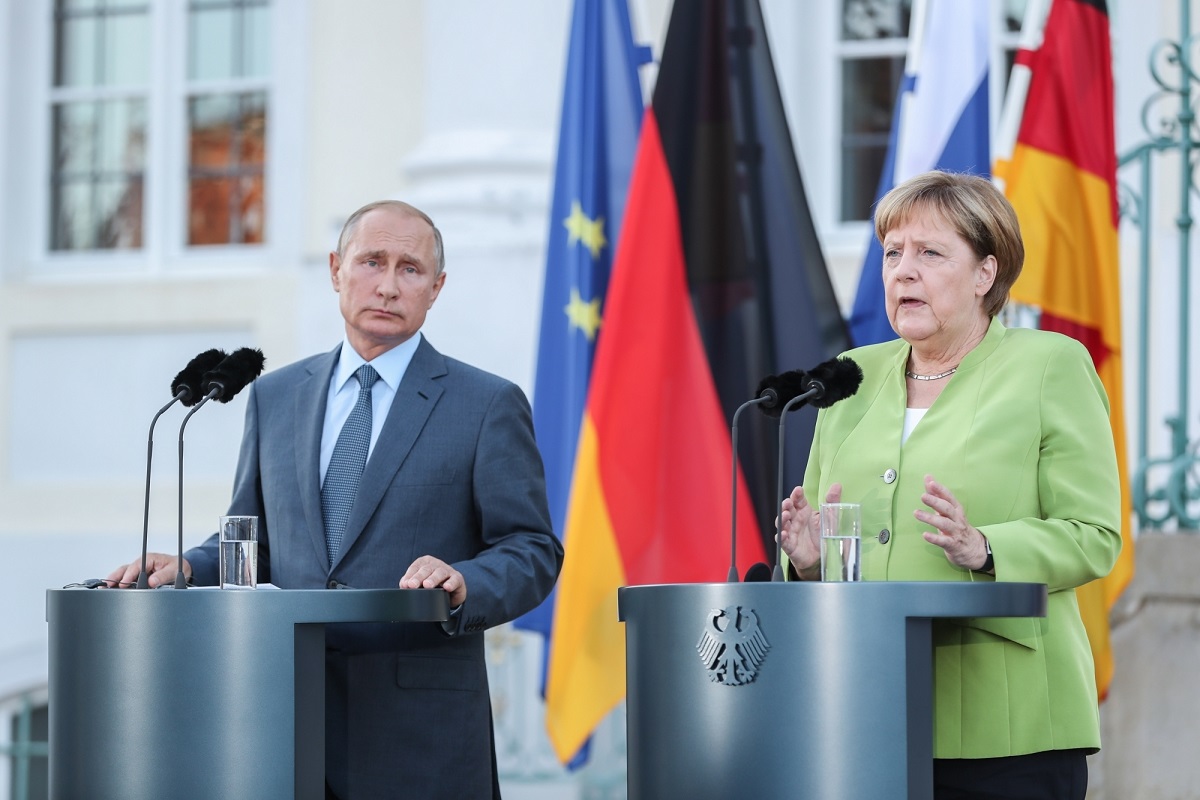Russia ready for dialogue with Ukraine: Kremlin
Russian President Vladimir Putin has confirmed his readiness for dialogue with Ukraine, and that an aborted 2022 peace deal could serve as the basis for resuming the negotiation,
Libya has been locked in a civil war since the ouster and killing of former leader Muammar Gaddafi in 2011.

German Chancellor Angela Merkel and Russian President Vladimir Putin (Photo: IANS)
Russian President Vladimir Putin and German Chancellor Angela Merkel on Tuesday held a telephonic conversation and expressed concern over the escalation of hostilities in Libya and examined problems of the intra-Ukrainian conflict settlement, the Kremlin has said.
According to the statement, both the leaders have discussed the escalation of hostilities in Libya. The inevitability of an early ceasefire and the launch of intra-Libyan negotiations under UN auspices were emphasized.
The Russian side gave a positive assessment of Egypt’s mediation efforts to peacefully settle the Libyan crisis, following on from the decisions of the international conference on Libya held in Berlin on January 19, the statement said.
Advertisement
Putin and Merkel also exchanged views on the intra-Ukrainian conflict settlement, expressing concern over the lack of progress in the implementation of the Minsk agreements signed in 2015 and resolutions of the Normandy Four summit in Paris in 2019, it added.
Earlier on Monday, Merkel spoke to Egyptian President Abdel-Fattah al-Sisi over the phone and exchanged views about the latest developments of the Libyan situation in the light of the Egypt-sponsored initiative for peace in the North African country.
On Saturday, Sisi announced an initiative to end the Libyan internal conflict following his meeting in Cairo with Libyan east-based military commander Khalifa Haftar and Tobruk-based parliament speaker Aguila Saleh.
Merkel also welcomed the initiative, which she viewed as “an extension of the Berlin conference path with new effective elements and dimensions to the Libyan political process.”
Libya has been locked in a civil war since the ouster and killing of former leader Muammar Gaddafi in 2011.
The situation escalated in 2014, splitting power between two rival governments: the UN-backed Government of National Accord (GNA) based in the capital Tripoli and a government in the northeastern city of Tobruk allied with the Haftar-led Libyan National Army (LNA).
Egypt, the United Arab Emirates, France and Russia support Haftar’s LNA, while the GNA is backed by Turkey and Qatar as well as Italy.
Advertisement